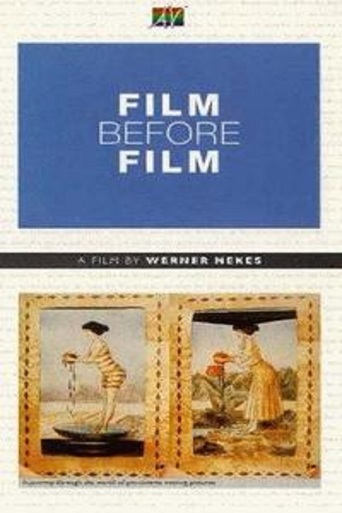

I watched this almost immediately after La Magie Méliès, a remarkable French television documentary by Jacques Mény made just a decade later, a documentary so well researched and put together that it has the very singular quality (a first in my experience) of being as satisfying for the specialist as for the ordinary viewer. This piece of work is exactly the reverse; it is so poorly organised that is unlikely to satisfy the ordinary viewer and will certainly not please a specialist.I was unfortunate in only being able to find an English version, horrifically dubbed with one of those ghastly narrations in an artificial "neutral" voice and with continual false emphases, born of prompt-card reading that is nowadays so miserably typical of British radio and television. But even had I been able to hear somebody with a genuine interest in the subject talking in a natural voice, I still don't think I should have really warmed to the "bit of this - bit of that" style which became simply more and more irritating as the film progressed.It is not that the material itself is not interesting. It is - very interesting even - but the fact that one could continually see ways in which it could be assembled both more informatively and more entertainingly simply added to the sense of frustration.I remember years ago attending a history conference concerned in part with the computerisation of precious census data, then in the hands of the Mormons, who, in those early days of the PC, were the only ones who could afford to do it. The Mormons, who could not understand why anyone should want to use the data for anything but the investigation of one's own genealogy frustrated all the historians present (myself included) with their obtuseness. Herr Welkes has all the characteristic faults of "the collector" and this makes him a sort of Mormon of the world of pre-cinema.In my review of La Magie Méliès, I explained how, despite its inevitable parti pris for its subject, impressed I was by the cautious way the film treated generalisations when quoting from his autobiography. Here we have the opposite - continual grandiose claims on the part of the film-maker himself that the film itself does not at all substantiate. And the continual misuse of the term "montage"...By the end of the film all pretence at coherence is abandoned and we end up with a sequence, post-film, that is nothing more than a display of curiosities from the Welkes collection.The subject is not the same but I would warmly recommend to anyone interested either in pre-film and early film or in hos to make a really good documentary the excellent Magie Méliès.
... View MoreIt's unfortunate that this movie is really poor quality and tries to do a few things it simply can't, because otherwise it's pretty interesting.An exploration of the various forms of moving or changing imagery based pre-film media is the subject of this documentary, as a German researcher shows us the various different tools and toys that made illusions of movements come to people in earlier centuries. Most of them deal with shadow play, boxes, and lanterns, but he also analyses the use of pop-up books and stuff like masks.I think the most interesting thing presented in this film is the fact that a lot of these things were pornographic in nature, most likely because of the sense of voyeurism they create.A big problem with a lot of the things he tries to do is to show three-dimensional imagery on the two dimensional screen. Sometimes he talks about stereoscopic vision and shows the two separate holes, but the viewer can't get an idea of what it's ultimately supposed to look like because the camera only has one eye, not two.--PolarisDiB
... View MoreI saw this film/documentary in the summer of '92. It really blew me away. Quite remarkable that such a documentary can stir such emotions, especially considering its topic. A topic of which I have no real interest in at all. So surprising, so MARVELLOUS.
... View MoreStarting with the camera obscura and three dimensional view boxes and moving on to the slide projectors and various nineteenth century devices, and ending with mechanical books and hold-to-light postcards, this documentary covers predecessors of motion pictures, both as entertainment and as scientific curiosities.Seems a bit slow and lacking in focus. The musical score was hard to take. Not really for a general audience.
... View More